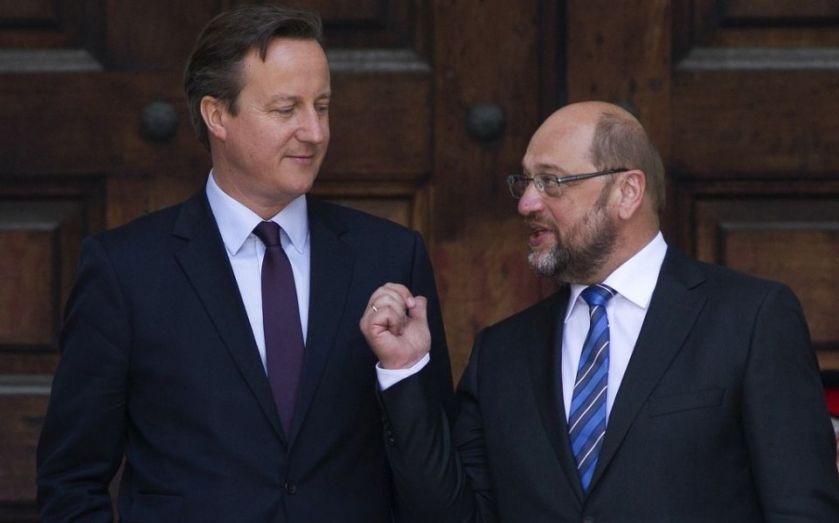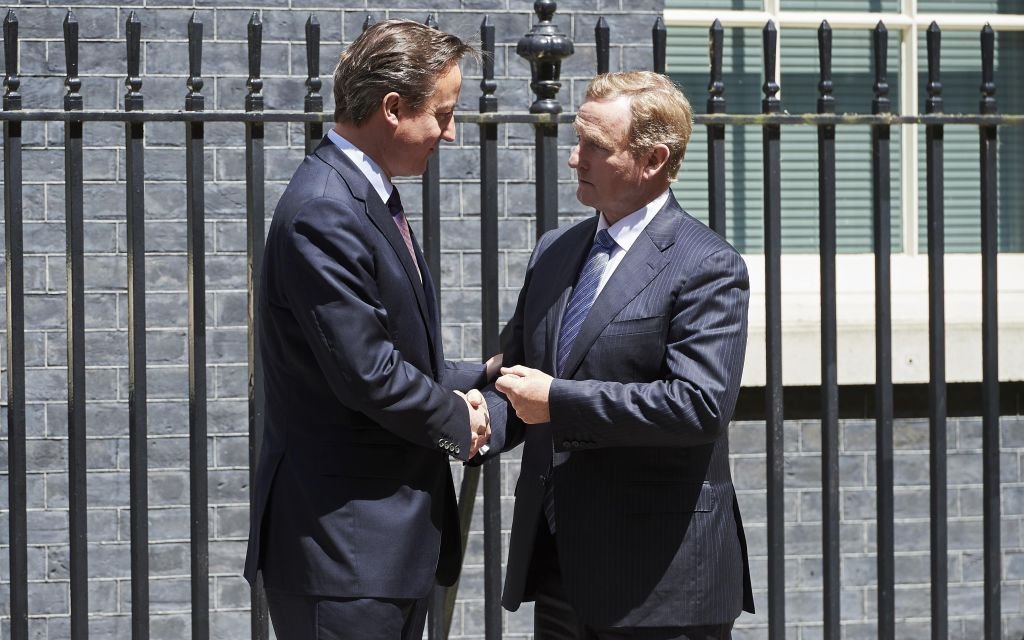EU president says compromise is needed as he discusses “controversial” reforms with David Cameron

The president of the EU has said that compromise is needed as Cameron pressed on with his plans to renegotiate Britain's relationship with Europe.
President Martin Schulz met the Prime Minister at Downing Street, as Cameron continued his bid to court European leaders. He later hosted Irish Prime Minister Enda Kenny.
Mr Schulz said there were "different views" about the UK's proposals, but he expressed optimism by acknowledging that there was "common ground" to work on.
Cameron echoed the sentiment, saying there was "a long way to go".
After his meeting with Cameron, the European president said the leaders had covered some "controversial items". He added:
Dialogue is necessary. Solutions are always coming via dialogue and at the end via compromise.
There is a long list of common interests and I think common ground could be found by analysing and discussing content. That is what we did.
There were some controversial items and it is not surprising that in the European Parliament some views are different than here in London.
On the agenda was reform of European welfare systems and EU treaties. Cameron said there was still "a long way to go in this reform and renegotiation, a lot of difficult issues to discuss, things that I believe fundamentally need to change, but it has been good to start these discussions today."
Trouble at home
Cameron has said he hopes to secure a "better deal" for the UK in Europe before a referendum in 2017, but he is facing trouble at home after 27 of his backbenchers rebelled against the government this week.
Senior Tory MPs are have outlined their demands for EU changes in a study for the Politeia think tank. Conservative Eurosceptics are putting pressure on their Prime Minister as he holds talks in Europe, with Sir Bill Cash, Bernard Jenkin and John Redwood setting out their expectations for a reformed Europe.
MPs continue to debate the EU Referendum Bill, which must be approved by Parliament before a vote takes place in 2017.
German Chancellor Angela Merkel, meanwhile, said "there can be no contradiction of the EU founding principles. Free movement is not up for discussion."
In his diplomatic blitz of Europe, Cameron has so far held talked with leaders from Germany, France, Italy, Poland, Belgium, Luxembourg, Spain and Romania.
 David Cameron met Irish Prime Minister Enda Kenny in a bid to persuade him for EU reform (Source: Getty)
David Cameron met Irish Prime Minister Enda Kenny in a bid to persuade him for EU reform (Source: Getty)
The Irish Prime Minister will talk about Cameron's plans for the EU in Downing Street. He is expected to raise concerns over the negative impact a Brexit would have.
Ahead of his visit, current and former Irish ministers raised their concerns about the UK leaving the EU. Former Prime Minister Bertie Ahern told the BBC that a Brexit would be "senseless".
The UK's proposals will be discussed by European leaders at the European Council summit starting on 25 June.
Cameron has said he wants to speak to all his 27 EU counterparts about his aims before the meeting.